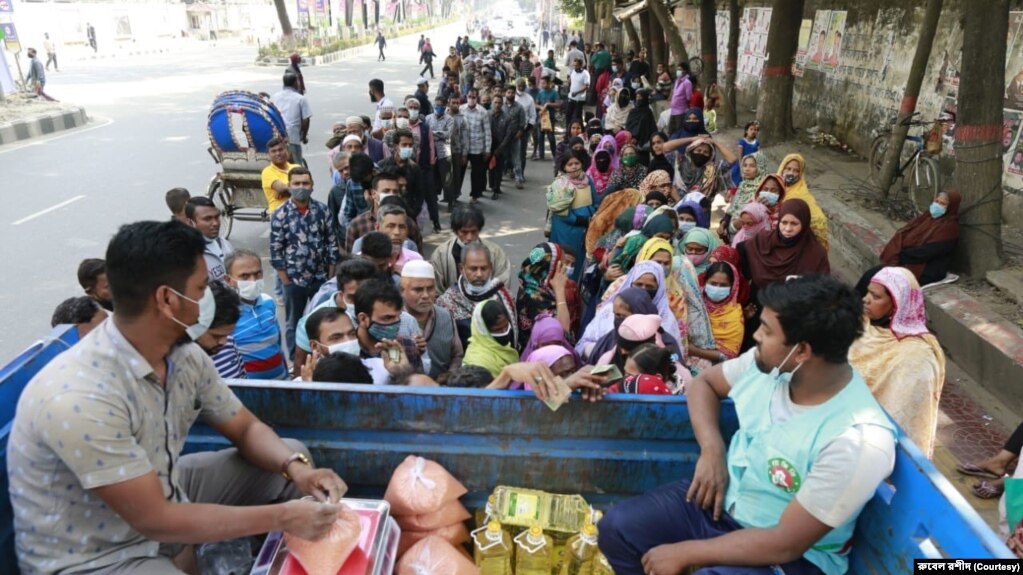The Prime Minister, in her characteristic cantankerous manner, commented recently that everyone is now an expert on the central bank’s foreign currency reserves. Well, even a broken clock can give the right time twice a day, and occasionally even Mrs Hasina Wajed’s utterings can contain some merits. Central bank balance sheet is, indeed, a technical concept that requires expert knowledge. So it is for gross domestic product, or GDP. Even professional economists can stumble on these matters.
Not so for the cost of living. Anyone who does grocery, pays bills, hails a ride —basically, everyone—understand very clearly when the cost of living goes up, as have been the case for the past year. Rising cost of living —inflation, to use the economists’ jargon —is intuitively understood by everyone.
When inflation is high, prices tend to outpace wages, and there is a cut in real income. When inflation is high, savers’ wealth is devalued. Rising or volatile inflation makes it difficult to plan for the future, affecting investment, employment, and incomes. The effects on people’s living standards are palpable.
Inflation also feeds into social malaise and discontent in less tangible ways. Historically, high and rising inflation had been the times when rulers debased their metallic coins, often to pay for ruinous wars. In a modern economy, volatile inflation is often the result of macroeconomic mismanagement.
In every society and culture, there are folk memories of inflation being associated with a society that is coming apart at the seams, where those in charge have abdicated their responsibility, where an honest person cannot afford chaal-daal-tel-noon.
And in Bangladesh, such times are almost always associated with the rule of Awami League.
It is well documented by economists that the economic statistics produced by the government agencies are doctored. However, even the official data shows that inflation was high in 2022, with average prices rising by nearly 9 percent. The International Monetary Fund expects inflation to increase in 2023. Think tanks and independent economists agree that cost of living pressures are hitting all sectors of the society.
Of course, the government propaganda would claim that inflation is because of the Ukraine War. What they won’t tell you is that their incompetence has made a bad situation significantly worse.
Imagine you are on a night bus on the Dhaka-Chittagong highway, and it starts raining heavily, making it hard for the driver to see the road ahead. A responsible driver would slow down, and tell the passengers that the bus will arrive late.
It is something similar with inflation and the economy. When the global energy prices went up last year, the government should have come clean to the people, admitting that the economy would need to slow, the taka might have to depreciate further, things would likely get worse before they get better. A responsible government would have taken all sections of the society into their confidence, laying out a way for the sufferings to be shared by all, and then acting accordingly.
The government of Mrs Wajed did exactly the opposite —one day arrogantly dismissing the IMF and other international development partners because apparently we don’t need anyone’s help, the next day claiming famine might be imminent, and then spending scarce foreign currency lavishly on propaganda events while businesses can’t find dollars for goods vital for their survival.
Of course, the government propagandists wouldn’t mention these. Nor would they mention that the last BNP government had kept inflation to around 5½ percent a year despite the rise in global energy prices in the aftermath of the Iraq War, whereas under the Awami League, annual inflation rate had averaged 6-7 percent before the covid pandemic, hitting 10 percent in 2011, when global inflation had been very, very low.
And the government propagandists would never mention the 1970s, when under the Awami League government prices rose four-folds in three years. If the issue is raised, they would talk about the effects of the Liberation War and global factors, forgetting that in the latter half of the 1970s, under the leadership of President Ziaur Rahman, massive reconstruction effort helped tame inflation despite continued global shocks.
The Awami League government lies about the state of the country’s foreign currency reserves, balance sheets of its banks, the identity of the loan defaulters, the extent of the public money being wasted on electricity contracts, the true costs of infrastructure projects, and so on. But they cannot lie about the fact that a kilogram of coarse rice in Dhaka costs 60 taka, not the 10 taka that Hasina Wajed promised in 2008.
When it comes to inflation and Bangladesh, it’s not the global factors, but the Awami League! The cost of living pressures on all sections of the society must be alleviated. And they can be alleviated. But it won’t happen under this government.


